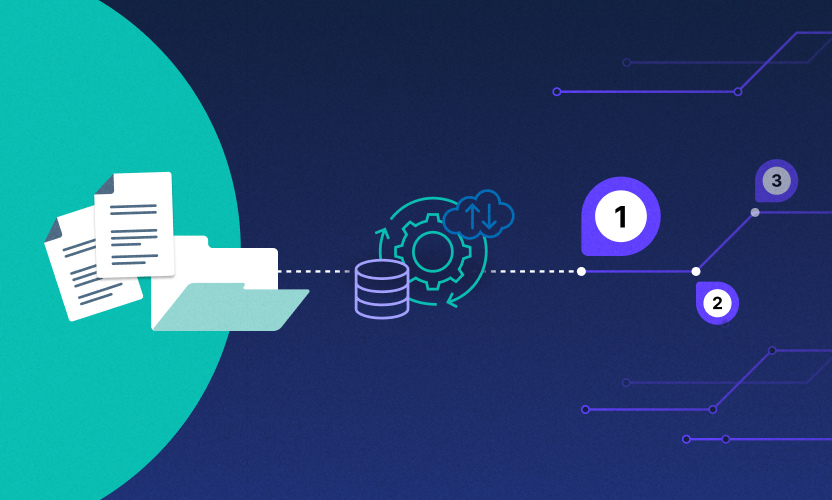
Top 5 Tech Trends Shaping Financial Services in 2025
New technologies, regulatory shifts, and the next generation of clients are redefining the financial services industry and what customers expect from the firms they work with. Firms embracing these changes will gain a competitive edge, while those who ignore them risk falling behind.
Countless technology innovations across the industry are redefining the customer experience, security, data management, and back-office functions. But what is poised to make the biggest impact in 2025?
Here are some insights into five financial services technology trends that are expected to drive the industry forward this year:
1. Redefining SaaS: Service as a Software
At this point, most people are familiar with Software as a Service, but that acronym has been experiencing a second life as Service as a Software (SaaS). This word rearrangement may seem like a small change from the traditional “software as a service” tools you’ve seen for years, but it is actually a transformation in how software providers approach technology solutions, focusing on how customers can leverage the software to achieve their desired results.
Cloud-based software solutions enable firms to offer scalable, on-demand services tailored to meet specific client needs. Wealth management, banking, and investment firms can provide flexible, user-friendly platforms that integrate multiple services—such as investment tracking, financial planning, and customer support—into a single interface. By leveraging SaaS, financial institutions can improve operational efficiency, reduce costs, and elevate customer satisfaction through seamless service delivery.
2. AI-Driven Intelligence for More Accurate and Efficient Decision-Making
AI is reshaping financial services in two major ways. On the customer-facing side, AI-powered chatbots provide 24/7 instant support, and generative financial planning tools offer personalized investment strategies based on client profiles, goals, and market trends. On the back-office side, AI workflows streamline operations by automating data processing and organization, enabling firms to handle vast amounts of information with greater efficiency. These are prime examples of integrating AI for financial services across operations, allowing financial institutions to make faster, more informed decisions and increase overall capacity, leaving more time for personal client interactions.
3. Decentralized Finance (DeFi): The Disruption of Traditional Banking
Blockchain technology is evolving beyond cryptocurrencies, influencing everything from treasury management to regulatory oversight. With major economic players, including the U.S. government, exploring blockchain's potential, the technology is poised to affect every American in the coming years.
DeFi and tokenized assets are transforming traditional financial models, offering faster transactions, reduced costs, and increased transparency. While regulatory frameworks for DeFi remain uncertain, history tells us that regulators will soon catch up, making it essential for financial institutions to set up their infrastructure with future regulations and policy changes that could impact their operations in mind.
4. Cybersecurity: Safeguarding Trust in a Digital World
Cyber threats remain one of the most significant risks to financial institutions. In fact, a recent Egnyte survey found that 25% of banking workers have been hacked via a phishing attempt. In 2025, cybersecurity for financial services is not just about defense—it’s about demonstrating security to customers as a trust-building strategy. Advanced security frameworks incorporating real-time threat detection, adaptive fraud prevention, and secure cloud environments are critical and will serve as a competitive differentiator to preserve client and regulator trust.
Accelerating the adoption of cloud computing throughout the organization is important. Embracing the cloud enables financial institutions to improve scalability, optimize data management, and reduce operational costs. Cloud-based solutions facilitate real-time analytics and proactive security and support a more agile infrastructure, allowing firms to adapt quickly to market changes and regulatory demands.
5. The Rise of RegTech: Smarter Financial Data Compliance in a Digital World
Regulatory technology (RegTech) is no longer optional—it’s essential. With an ever-evolving compliance landscape, financial firms need tools that provide real-time monitoring and automated regulatory updates.
RegTech solutions allow firms to make faster, more informed decisions while mitigating risk. By leveraging AI and automation, RegTech streamlines the financial data compliance processes, reducing the burden on firms and minimizing regulatory risks. These solutions provide real-time monitoring and predictive analytics, helping organizations stay ahead of evolving legal requirements.
The Digital Operational Resilience Act (DORA) in the EU and similar initiatives in the UK and U.S. highlight the growing complexity of compliance. Proposed bills such as the "Unleashing AI Innovation in Financial Services Act, S. 4951, 118th Cong. (2023)" aim to foster AI-driven advancements by establishing regulatory sandboxes where firms can test AI projects responsibly. With bipartisan support and a pro-technology outlook from policymakers, 2025 presents significant opportunities for innovation in financial services.
Keep Learning to Stay Ahead of the Curve
For deeper insights, watch our 30-minute webinar to learn about each trend directly from the industry experts at Egnyte, explore real-world applications, and discuss strategies for navigating the future of financial services.





